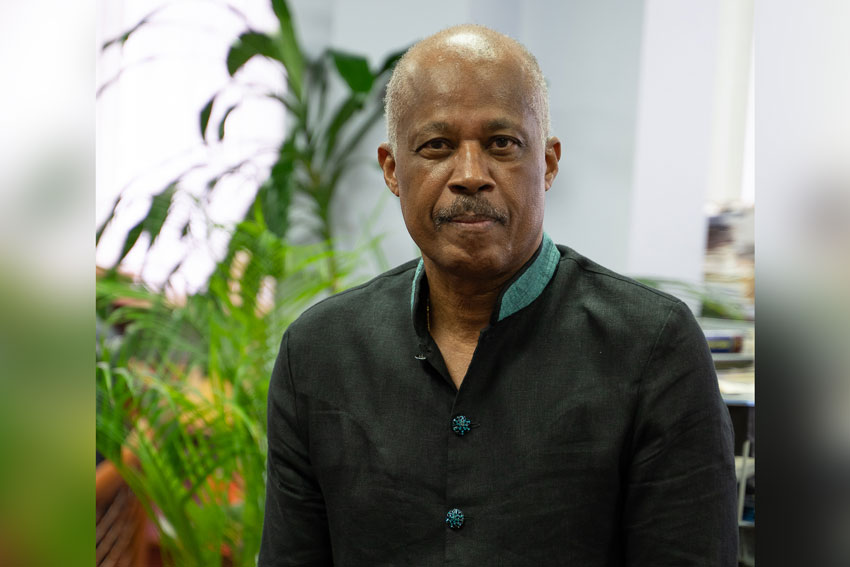BRIDGETOWN, Barbados, Nov 06 2015 – His 14 years in office were marked by sustained economic growth.
So, with the Barbados economy currently performing, by Central Bank estimates, at well below one percent growth annually, the Democratic Labour Party (DLP) Government may soon be calling on former Prime Minister Owen Arthur for advice.
Barbados TODAY understands that Arthur, a former leader of the Opposition Barbados Labour Party (BLP) who sits now as an independent member of the House of Assembly, has reportedly been approached by Minister of Finance Chris Sinckler to replace the retiring Sir Frank Alleyne, who is in his late 70s, as head of its “independent” advisory council on the economy.
That body, which was first impaneled by late Prime Minister David Thompson back in 2008, both reviews and recommends policy positions for the final approval of Cabinet, which will also have the last say should Arthur decide to take up Government’s job offer.
The Council’s membership, said to number about 14 at one point, largely reflects the tripartite arrangement. Membership is drawn from the trade union movement, the private sector, Government and academia.
Government is reportedly planning to make the Council smaller and have it focus on three specific areas: the social sector, statutory corporations which are earmarked for reform, and fiscal policy.
All indications are that Arthur, who turned 66 last month, and had earlier resigned from the Opposition BLP to go it alone, is warming to the idea of sharing his expertise to benefit the country through this new avenue.
When contacted by Barbados TODAY, Sinckler said he had no comment to make at this stage.
However, the St Peter representative confirmed that an approach had indeed been made to him to take over as chairman of the Council of Economic Advisors.
“I have been approached, but as far as I am aware, there has not been any formal decision of the Government,” he told Barbados TODAY.
However, Arthur made it clear that he was not about to cross the floor and join the DLP Government, even though he acknowledged that his role of economic advisor would require that he works closely with the Freundel Stuart Government.
Pressed on the matter, Arthur was adamant about retaining his independence in parliament.
“I do it [advise on the economy] in parliament all like now,” he told Barbados TODAY.
Revealing that he had also been approached earlier by Senator Darcy Boyce to work with the Government on the Caribbean Commission on the Economy, Arthur, who had earlier rejected a suggestion made by Opposition Leader Mia Mottley for him to form part of an “eminent persons group on the economy”, said: “Clearly, it [the offer] says that they [the Government] think I have something to offer.”
The development comes on the heels of 3,000 plus layoffs in the public sector, and the announcement of $200 million in new tax measures in the last Budget — policies which Arthur has publicly deemed to be counterproductive.
In fact, his June contribution to the Budget debate focused on the need for achieving sustainable growth to support a continued high standard of living for Barbadians, and the urgent need for Government to address the record high level of public debt that is placing a severe strain on the country and adversely affecting its development prospects.
With Government facing an unprecedented challenge where 60 cents out of every dollar of revenue now go towards servicing the debt which, in March, was estimated at the dangerously high level of 135 per cent of gross domestic product (GDP), Arthur had also made a strong case for Barbados to seek debt refinancing which, he contends, is indispensable if the emerging economic recovery is to gain momentum.
“There is no disgrace in dealing with the debt,” he told the Freundel Stuart administration back then, while referencing the dramatic turnaround of the Guyana economy, which after decades in the doldrums, is now the fastest growing CARICOM economy. He also referred to Jamaica and St Kitts as other CARICOM countries that have opted to go this route to deal with their debt.
As for the $200 million in new taxation which was imposed in the Budget, he said it represents a setback for the emerging recovery, since it is more likely to cause the economy to re-enter contraction.
“When a country is coming back out of recession, the one thing that is expected of a Minister of Finance is a confidence-boosting measure that points the way to a better future,” he said, reflecting on his own experience in 1994 when Barbados was in a similar situation. (Barbados TODAY – http://www.barbadostoday.bb/2015/11/03/owens-turn/)




